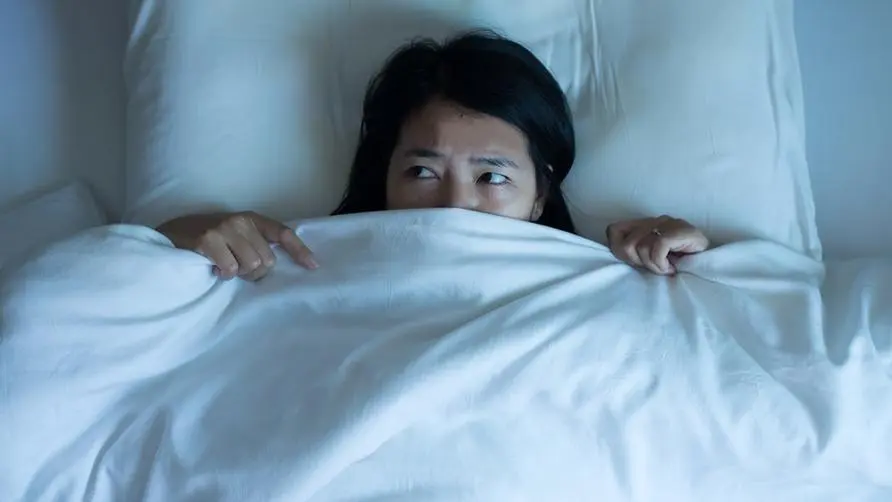Why do I always have "nightmares"? Can recurring nightmares be treated? Critical care doctor warns: Stop doing "6 things"

Do you often have nightmares? Dr. Huang Xuan, an expert in critical care medicine, pointed out in a social post that about 4% of people suffer from nightmares for a long time, which can even seriously interfere with sleep and cause harm to the body, mind and soul. Recent research reports have also found that the frequency of nightmares and sleep disorders is increasing in people around the world since the COVID-19 pandemic.
“Nightmares” may affect sleep quality! Study: Combined use of “2 therapies” can help you have a good night’s sleep
Dr. Huang Xuan said that people who have frequent nightmares may be more likely to wake up in the middle of the night, causing sleep disruption. In the long run, this may affect sleep quality and lead to depression. Studies have suggested that “intentional recapitulation” (IR) and “intentional exposure” (IE) therapy can be used during sleep to reduce the frequency of nightmares and allow patients to obtain better sleep quality. Dr. Huang Xuan further stated that there are generally two types of clinical treatments to alleviate nightmares:
Imagery rehearsal therapy (IRT). This therapy allows patients to describe their nightmare experiences, transform them into non-threatening situations, and practice new dreams through visual imagery in daily life. This daily practice effectively helps them reshape their horrific dreams to reduce the frequency of nightmares. However, this treatment is difficult, and not every patient may be able to effectively control their dreams.
Targeted memory reactivation (TMR). TMR therapy is an important method of consolidating memory. It evokes memory by inducing memory clues. This therapy usually occurs during the “deep sleep” stage, and can promote the maintenance of procedural and declarative memory, and reduce the frequency of nightmares by remembering happy emotions. However, there is no unified conclusion on the effect of this therapy on memory consolidation when prompted during wakefulness or REM sleep.
Dr. Huang Xuan explained that a research team from Switzerland combined the above two treatment methods, using IRT therapy to reduce the frequency of nightmares; and using TMR therapy to enhance happy memories. Researchers found that the combination of the two treatments can effectively reduce nightmares and increase positive emotions in dreams. For people who have suffered from nightmares for a long time, it can indeed reduce the frequency of nightmares and promote good sleep. quality.
Staying in bed, eating spicy food, and smoking and drinking frequently may lead to an increase in the frequency of nightmares.
What behaviors in daily life increase the frequency of nightmares? Dr. Huang Xuan listed 6 risk factors as follows, calling on the public to improve their living habits to prevent nightmares from affecting their quality of life.
Often used to staying in bed. A study by the University of Oxford in the UK has shown that people who sleep more than 9 hours a night have more nightmares than those who sleep 6 hours. Possible Cause Increased sleep leads to longer rapid eye movement (REM) periods. The rapid eye movement period is the last stage of the sleep cycle, and it is easier for people to dream during this stage. So the longer you sleep, the higher the chance of nightmares.
Poor emotional control. Anxiety caused by work or financial pressure, or major life changes such as moving, divorce, etc., can easily lead to greater emotional fluctuations, a decrease in the ability to withstand stress, and a worsening of the mood. This phenomenon can easily lead to nightmares after falling asleep. Studies have also shown that people with lower stress resistance in life are more likely to have nightmares.
Currently ill. In the early stages of human illness, the irritating information caused by the disease is very small, and it is difficult to feel it clearly when you are busy at work during the day. However, when going to bed at night, such feelings will be abnormally amplified, causing over-excitation of the cerebral cortex. Patients will be prone to various terrifying situations and feelings after falling asleep.
Use antidepressants. Studies have shown that certain antidepressant drugs, such as Prozac, may increase the chance of nightmares because these drugs increase the duration of the rapid eye movement period of sleep, making people more likely to have nightmares. However, if any medicine can cause nightmares, the patient must fully discuss it with the doctor in advance and do not stop taking the medicine on his own to avoid aggravating the original disease.
Eat fatty/spicy foods. Some studies have found that excessive intake of high-fat food during the day is difficult to digest, so it can easily have a negative impact on the quality of sleep at night and increase the chance of nightmares. Another study believes that eating too much spicy food at night, coupled with the fact that spicy food is not easy to digest, can easily increase body temperature, worsen sleep quality, and worsen nightmares.
Smoking or drinking. Alcohol will increase the length of the rapid eye movement (REM) period of sleep, making patients prone to more nightmares. Alcohol can also cause patients to wake up suddenly after falling asleep, causing “sleep fragmentation”, which will seriously affect sleep quality in the long run. In addition, some studies have pointed out that long-term smokers are twice as likely to suffer from sleep problems as the average person; smokers are also found to be prone to nightmares and poor sleep quality, leading to daytime sleepiness, listlessness, and reduced work ability.
Source:
“How to Reduce Nightmares?” - Dr. Huang Xuan
Nightmares in People with COVID-19: Did Coronavirus Infect Our Dreams?
Enhancing rehearsal imagery therapy for nightmares with targeted memory reactivation
Further reading:
Is “empathy” related to gender? Mouse study: Physical contact increases “altruistic behavior”





